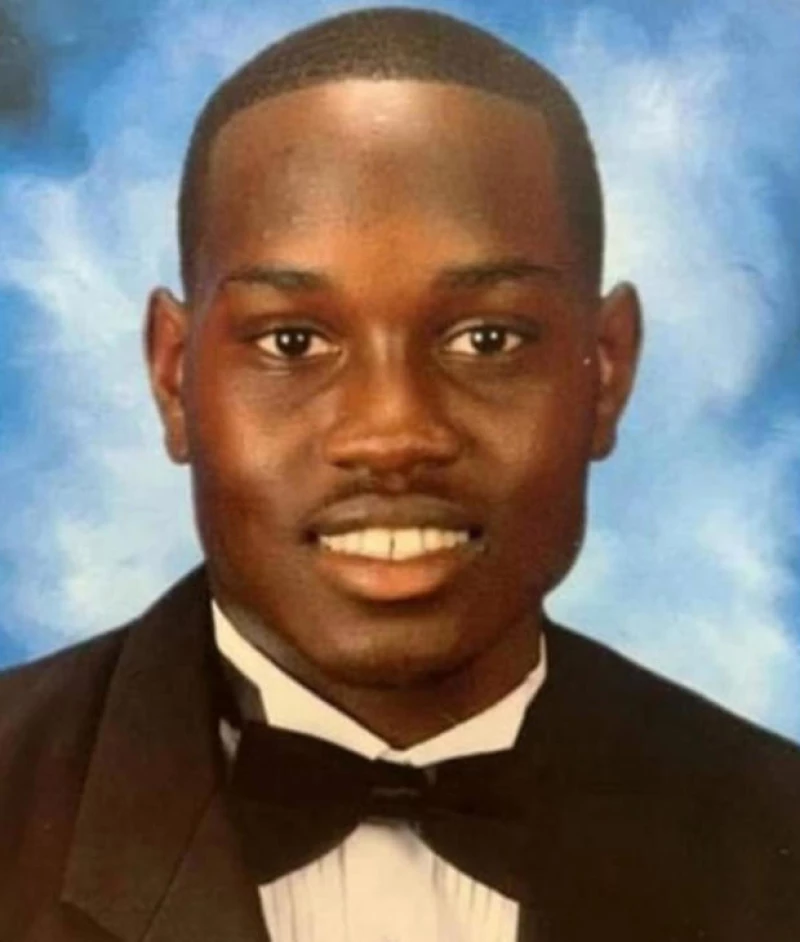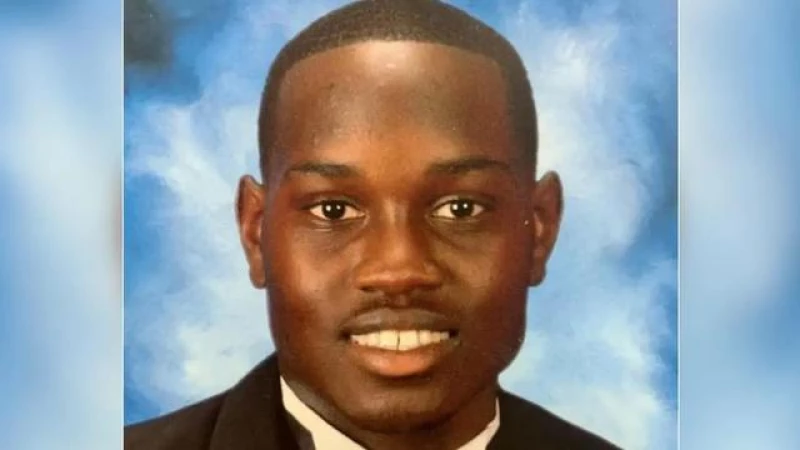Lawyers are urging a U.S. appeals court to dismiss the hate crime convictions of three Caucasian individuals who utilized pickup trucks to pursue Ahmaud Arbery through the roads of a Georgia neighborhood before one of them fatally shot the fleeing African American man with a shotgun.
A group of judges from the 11th U.S. Circuit Court of Appeals in Atlanta was set to listen to oral arguments on Wednesday in a lawsuit that came after a widespread outcry following Arbery's death. The attorneys for the men contend that previous racist remarks they made do not necessarily indicate a racist motive to cause harm.
On February 23, 2020, father and son Greg and Travis McMichael armed themselves and pursued Arbery with firearms after seeing the 25-year-old man jogging in their community just outside the seaport city of Brunswick. A neighbor, William "Roddie" Bryan, joined the pursuit in his own truck and captured video footage on his cellphone of Travis McMichael shooting Arbery on the street.
More than two months went by without any arrests, until Bryan's explicit video of the shooting surfaced online and the Georgia Bureau of Investigation took control of the case from the local authorities. Subsequently, charges were filed.
All three men were convicted of murder in a Georgia state court in late 2021. After a second trial in early 2022 in federal court, a jury found the trio guilty of hate crimes and attempted kidnapping, concluding the men targeted Arbery because he was Black.
In legal briefs filed ahead of their appeals court arguments, lawyers for Greg McMichael and Bryan cited prosecutors' use of more than two dozen social media posts and text messages, as well as witness testimony, that showed all three men using racist slurs or otherwise disparaging Black people. The slurs often included the use of the N-word and other derogatory terms for Black people, according to an FBI witness who examined the men's social media pages. The men had also advocated for violence against Black people, the witness said.
Bryan's attorney, Pete Theodocion, said Bryan's past racist statements inflamed the trial jury while failing to prove that Arbery was pursued because of his race. Instead, Arbery was chased because the three men mistakenly suspected he was a fleeing criminal, according to A.J. Balbo, Greg McMichael's lawyer.
Greg McMichael initiated the chase when Arbery ran past his home, saying he recognized the young Black man from security camera videos that in prior months showed him entering a neighboring home under construction. None of the videos showed him stealing, and Arbery was unarmed and had no stolen property when he was killed.
Prosecutors presented written briefs stating that the trial evidence revealed a deep-seated hatred and bias against Black individuals that influenced the defendants' perception of Ahmaud Arbery as a criminal.
"All three of these defendants acted upon assumptions — not facts, not evidence, but assumptions. They made life-altering decisions based on these assumptions in their own driveways, ultimately resulting in the loss of a young man's life," prosecutor Linda Dunikoski stated in court in November 2021.
During Travis McMichael's appeal, attorney Amy Lee Copeland did not contest the jury's determination that his actions were racially motivated. Social media evidence presented included a 2018 Facebook comment by Travis McMichael on a video depicting a Black man playing a prank on a white individual. In the comment, he used a racial slur and an expletive, stating: "I'd kill that .... ."
However, Copeland's appeal focused on legal technicalities, rather than disputing the racism involved. She argued that the prosecution had not sufficiently demonstrated that the streets in the Satilla Shores subdivision, where Arbery was fatally shot, were public roads, as claimed in the indictment against the defendants.
Copeland referenced a 1958 meeting of Glynn County commissioners where they declined to take ownership of the streets from the subdivision's developer. During the trial, prosecutors relied on service request records and testimony from a county official to establish that the county government had been maintaining the streets.
Attorneys for the trio also made technical arguments for overturning their attempted kidnapping convictions. Prosecutors said the charge fit because the men used pickup trucks to cut off Arbery's escape from the neighborhood.
Defense attorneys said the charge was improper because their clients weren't trying to capture Arbery for ransom or some other benefit, and the trucks weren't used as an "instrumentality of interstate commerce." Both are required elements for attempted kidnapping to be a federal crime.

Prosecutors said other federal appellate circuits have ruled that any automobile used in a kidnapping qualifies as an instrument of interstate commerce. And they said the benefit the men sought was "to fulfill their personal desires to carry out vigilante justice."
The trial judge sentenced both McMichaels to life in prison for their hate crime convictions, plus additional time — 10 years for Travis McMichael and seven years for his father — for brandishing guns while committing violent crimes. Bryan received a lighter hate crime sentence of 35 years in prison, in part because he wasn't armed and preserved the cellphone video that became crucial evidence.
All three also got 20 years in prison for attempted kidnapping, but the judge ordered that time to overlap with their hate crime sentences.
Appeals Court Decision Could Impact McMichaels and Bryan's Prison Sentences
A recent development in the case of the McMichaels and Bryan, who are currently serving life sentences for murder in Georgia, has raised questions about their future. If the U.S. appeals court overturns any of their federal convictions, both McMichaels and Bryan would remain in prison. All three individuals have motions for new state trials pending before a judge, adding another layer of complexity to the situation.







